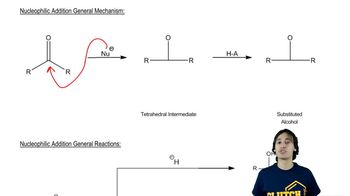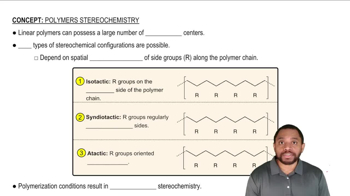Show how you would accomplish the following synthetic conversions.
a. but-1-ene → butan-1-ol

 Verified step by step guidance
Verified step by step guidance Verified video answer for a similar problem:
Verified video answer for a similar problem:



 6:38m
6:38mMaster General properties of hydroboration-oxidation. with a bite sized video explanation from Johnny
Start learning